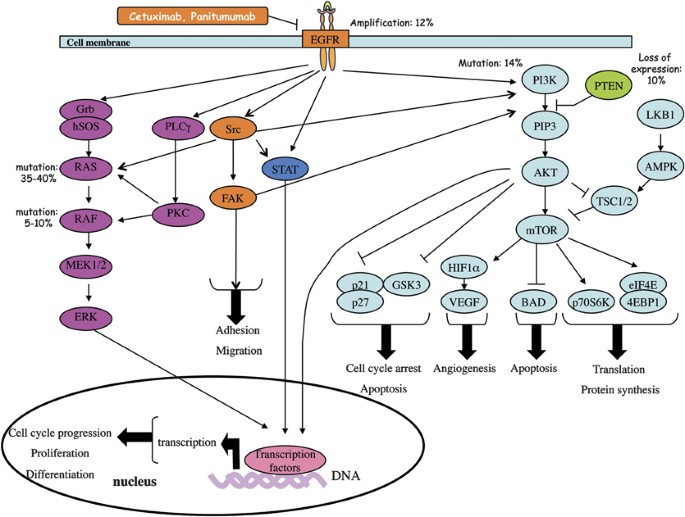
The Role of Genetic Mutations in Colon Cancer: Understanding the Connection
Colon cancer is one of the leading causes of cancer-related deaths globally. According to the World Health Organization (WHO), it accounts for approximately 10% of all cancer cases. Over the years, medical researchers have elucidated many factors that contribute to the development of colon cancer, including lifestyle choices, environmental factors, and genetic mutations. In this article, we will focus specifically on the role of genetic mutations in colon cancer and explore the connection between them.
Genetics plays a crucial role in determining an individual’s predisposition to colon cancer. Several genetic mutations have been identified as key players in the development of this malignancy. One of the most well-known genetic mutations associated with colon cancer is the adenomatous polyposis coli (APC) gene mutation. This mutation is present in 80% to 90% of patients with familial adenomatous polyposis (FAP), a hereditary condition that predisposes individuals to develop hundreds or even thousands of polyps in their colon. If left untreated, these polyps can progress into cancerous tumors over time.
The APC gene mutation leads to the loss of a tumor-suppressing protein known as the APC protein. This protein is responsible for regulating cell division and preventing the formation of tumors. When the APC gene is mutated, the protein’s function is compromised, allowing uncontrolled cell growth and proliferation in the colon, eventually leading to cancer development.
Another important genetic mutation associated with colon cancer is the KRAS mutation. The KRAS gene is responsible for producing a protein that regulates cell signaling and controls cell division. When a mutation occurs in the KRAS gene, it leads to the production of a defective protein that constantly signals cells to divide, even when it is unnecessary. This uncontrolled cell division paves the way for the formation of tumors in the colon.
Besides the APC and KRAS mutations, other genetic mutations, such as the TP53, BRAF, and PIK3CA mutations, have also been linked to colorectal cancer development. The TP53 gene mutation, also known as the “guardian of the genome,” is responsible for protecting cells from DNA damage and signaling them to undergo apoptosis (cell death) when necessary. When this gene is mutated, cells become more susceptible to genetic damage and are less likely to undergo apoptosis. This increases the risk of cancer development.
BRAF is another gene that plays a role in colon cancer progression. A specific mutation in the BRAF gene, known as the V600E mutation, leads to the activation of a protein that promotes cell growth and division. This uncontrolled cell proliferation contributes to tumor formation and progression.
Lastly, the PIK3CA gene mutation is associated with the activation of an enzyme called PI3K, which regulates cell growth and survival. When the PIK3CA gene is mutated, the enzyme becomes hyperactive, fostering the growth of cancerous cells.
Understanding the role of these genetic mutations in colon cancer is crucial for several reasons. Firstly, it helps in identifying individuals who may have an increased risk of developing the disease. Genetic testing can be performed to detect these mutations, allowing for earlier detection and intervention. Secondly, it aids in developing targeted therapies that specifically address the underlying genetic abnormalities associated with the tumor. By targeting these mutations, medical professionals can offer more effective and personalized treatment options to patients, improving their chances of survival.
Additionally, studying the role of genetic mutations in colon cancer helps to unravel the complex biology of the disease. With each new discovery, researchers gain insights into the mechanisms underlying tumor development, progression, and response to treatment. This knowledge serves as the foundation for the development of novel diagnostic techniques, therapeutic strategies, and preventive measures.
In conclusion, genetic mutations play a fundamental role in the development and progression of colon cancer. The identification and understanding of these mutations have revolutionized the field of oncology, enabling the development of targeted therapies that improve patient outcomes. Researchers must continue their investigations to unravel the intricacies of these genetic abnormalities and how they interact with other factors contributing to colon cancer. By doing so, we move closer to a comprehensive understanding of the disease and more effective treatments in the fight against colon cancer.












